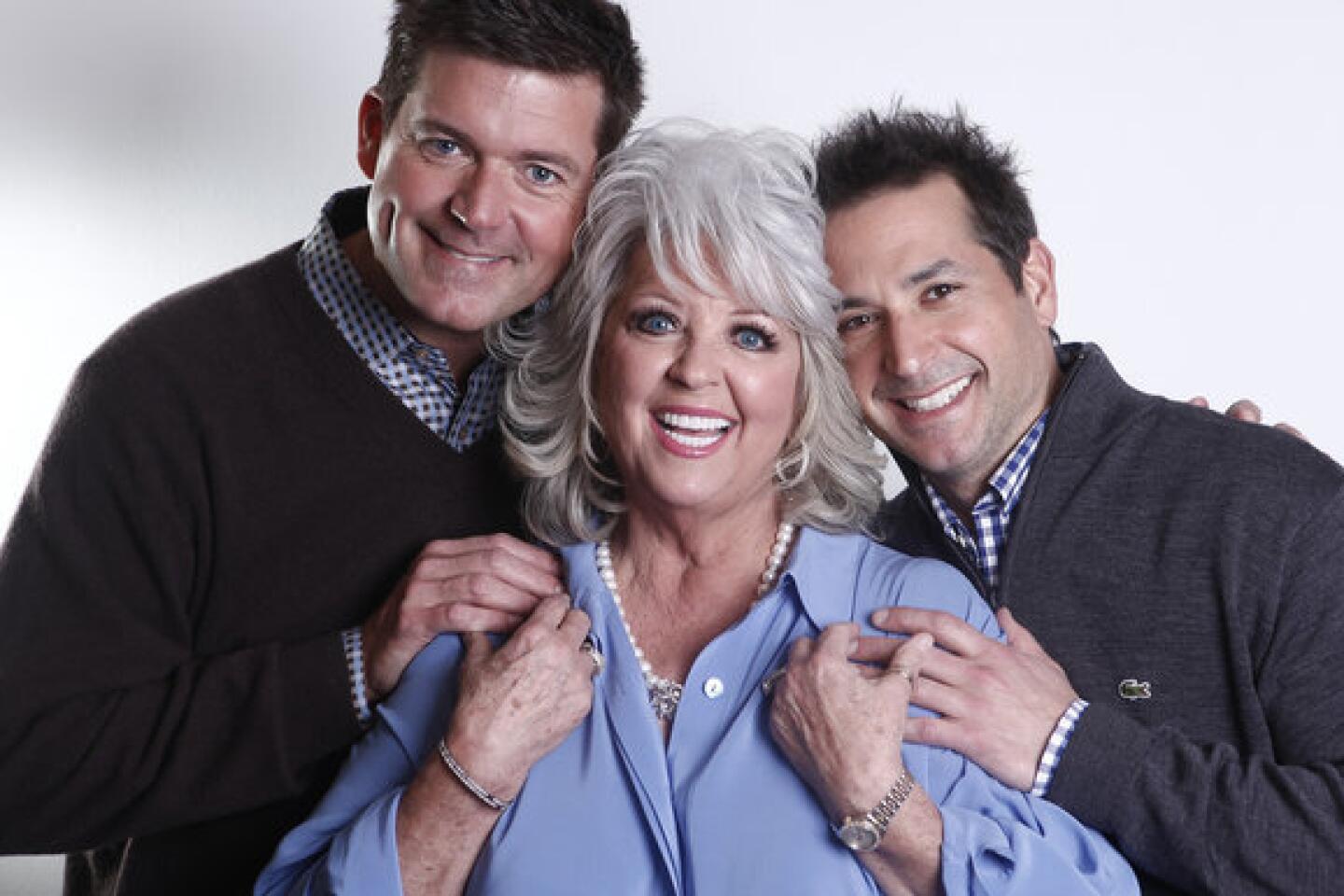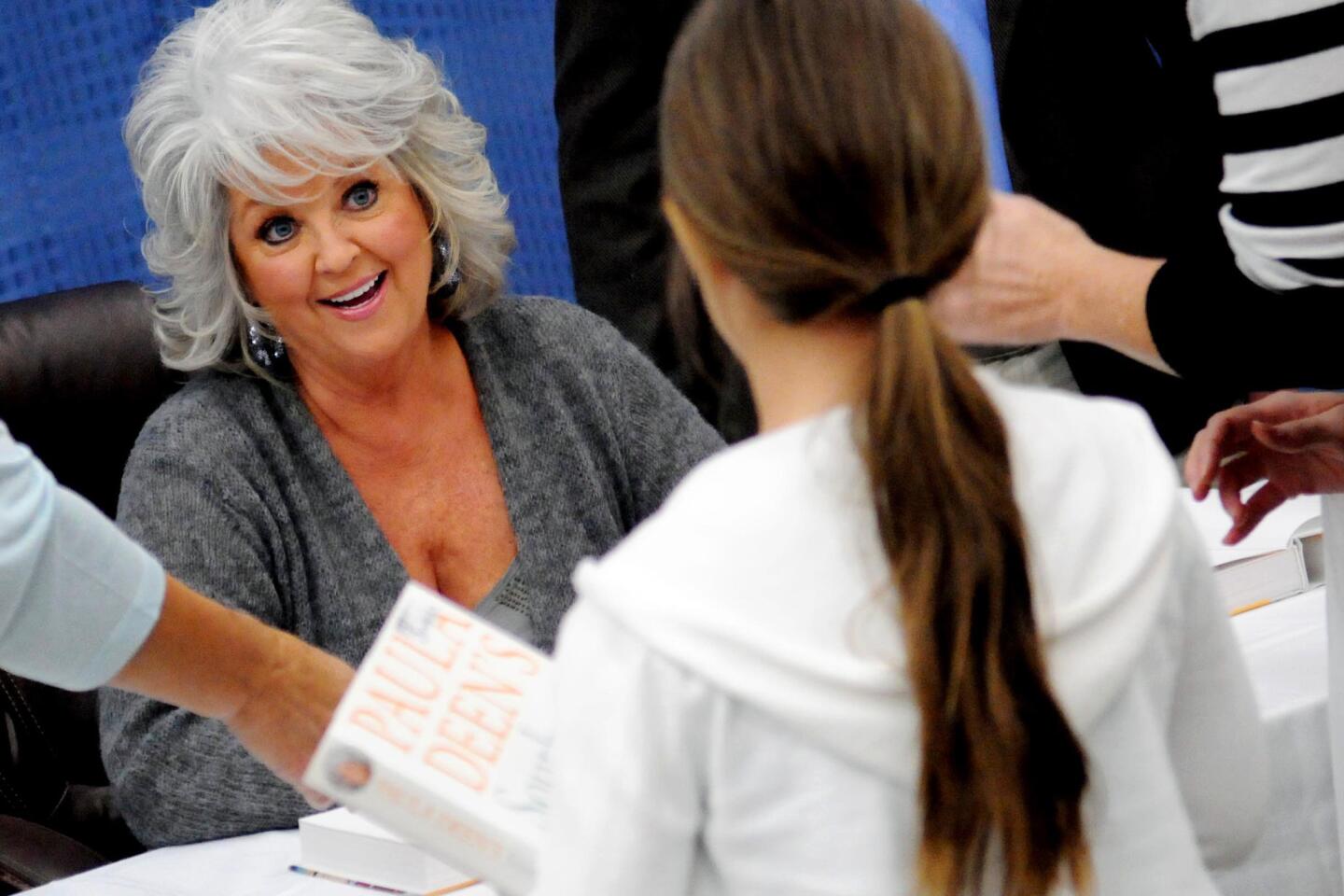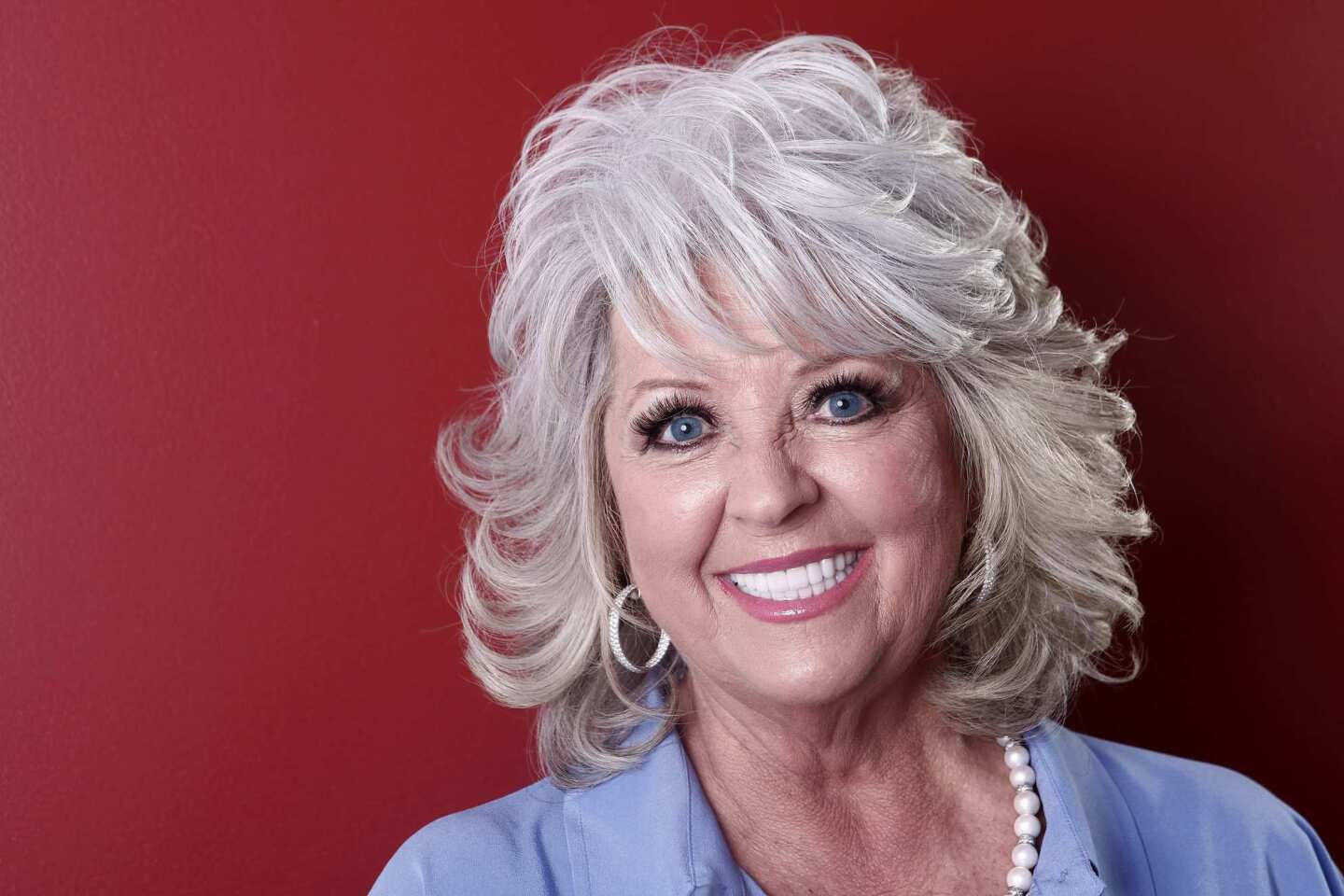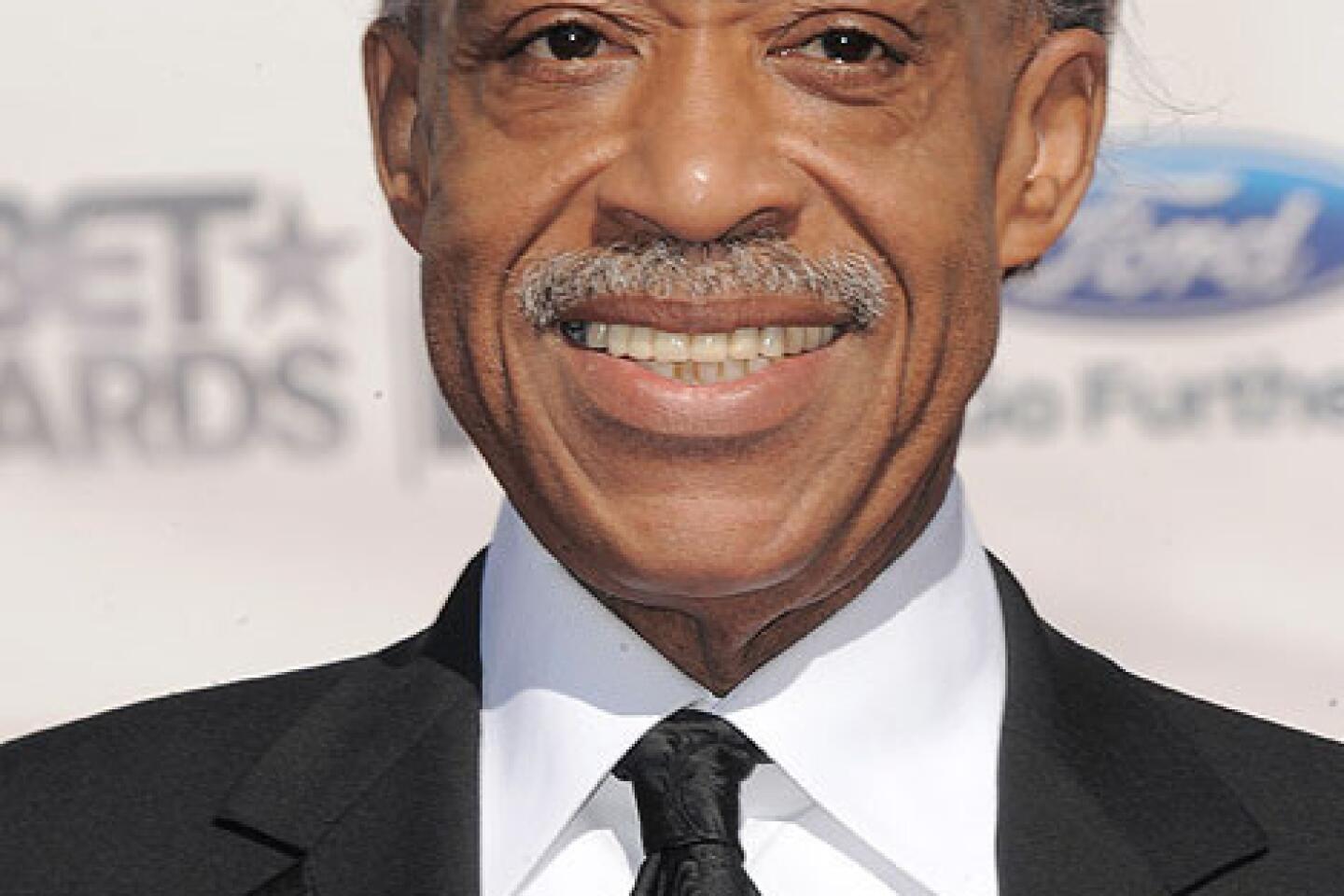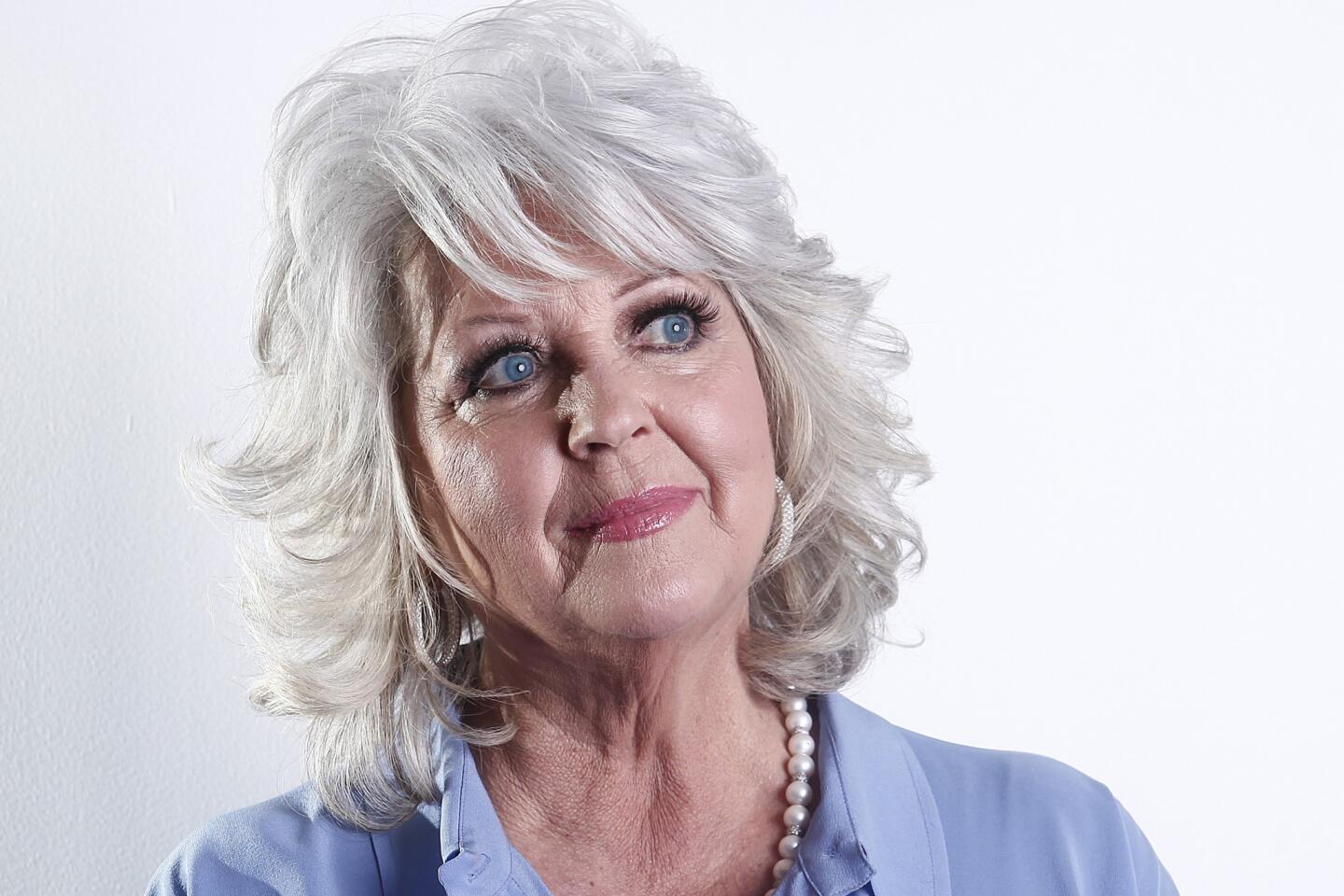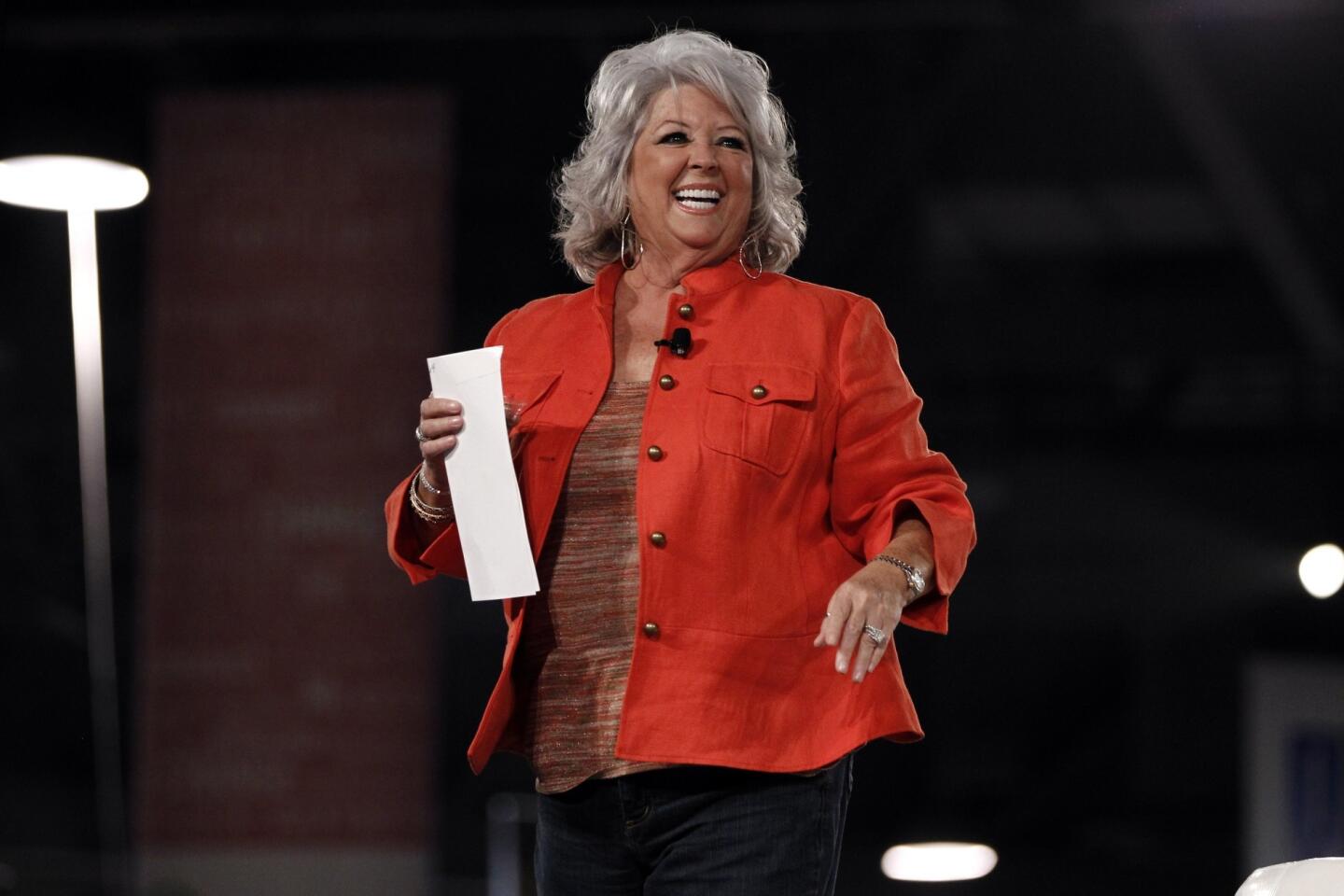Paula Deen settlement: Did money exchange hands?
Paula Deen’s legal woes disappeared Friday. Unclear, however, is whether the millionaire celebrity chef paid to make it all go away.
Chapman University law professor Lawrence Rosenthal said that the attorneys in the case employed a common, and nonetheless shrewd, legal tactic when they agreed Friday to drop the case “without any award of costs or fees to any party,” according to a court document.
That language suggests that no money exchanged hands. However, a closer look could suggest otherwise, with the key phrase being “without any awards” -- meaning no court oversight or awarding of damages to either side.
PHOTOS: Paula Deen through the scandal
Breaking it down into layman’s terms, Rosenthal said that if a judge were overseeing an agreement, there would be paperwork documenting the terms. But in this case, the agreement was reached between the two sides. As a result, the structure of the agreement means that “nobody [outside the involved parties] has any right of access to it.”
Rosenthal added: “If you want to make absolutely certain no one could ever see it, you do it this way. So, for all we know, [Deen] could have paid a jillion dollars. Or, nothing.”
Also surprising, Rosenthal said, was the statement released by Jackson and the tone it struck, praising Deen and seemingly trying to exonerate Deen from the charges made against her. Jackson’s statement said in part that Deen “is a woman of compassion and kindness and will never tolerate discrimination or racism of any kind toward anyone.”
Rosenthal called it a curious statement. “It’s impossible to know whether that statement was sincere, or something that was purchased through the settlement agreement. But this much is clear, it’s a very unusual statement to see.”
The lawsuit was filed by Lisa Jackson, a white woman and former employee at Uncle Bubba’s Seafood and Oyster House in Savannah, a restaurant co-owned by Deen and her brother, and run by her brother. Jackson claimed racial discrimination and sexual harassment in the lawsuit, saying racial slurs and sexual innuendo were commonplace in that workplace.
The judge in the case recently dealt Jackson a setback, saying she had no standing as a victim of racial discrimination, but allowed the sexual harassment portion of the claim to move forward.
The allegations against Deen unraveled her multimillion-dollar food empire and caused several businesses -- including retail giant Wal-Mart and Food Network -- to cut ties. Making matters worse, the legal proceedings led Deen to admit using the N-word decades earlier. Although Deen tried to explain it away by saying she used it in a moment of fear and frustration, and that she had never uttered it in the years since, the damage was done.
Adding to the legal machinations in the case: Deen’s attorneys were seeking sanctions against Jackson’s attorney, arguing that he had used the media to gain the upper hand in the case. It was enough that a judge could have removed the attorney from the case, or award damages to Deen. That had the potential to shift the balance of power away from the plaintiff, Rosenthal said.
As part of the court documents filed in the case today, Deen’s team is no longer pursuing those sanctions.
ALSO:
PHOTOS: Paula Deen through the years
Lawsuit that crumbled an empire dismissed
White woman in Deen case cannot claim racial discrimination
More to Read
Eat your way across L.A.
Get our weekly Tasting Notes newsletter for reviews, news and more.
You may occasionally receive promotional content from the Los Angeles Times.
